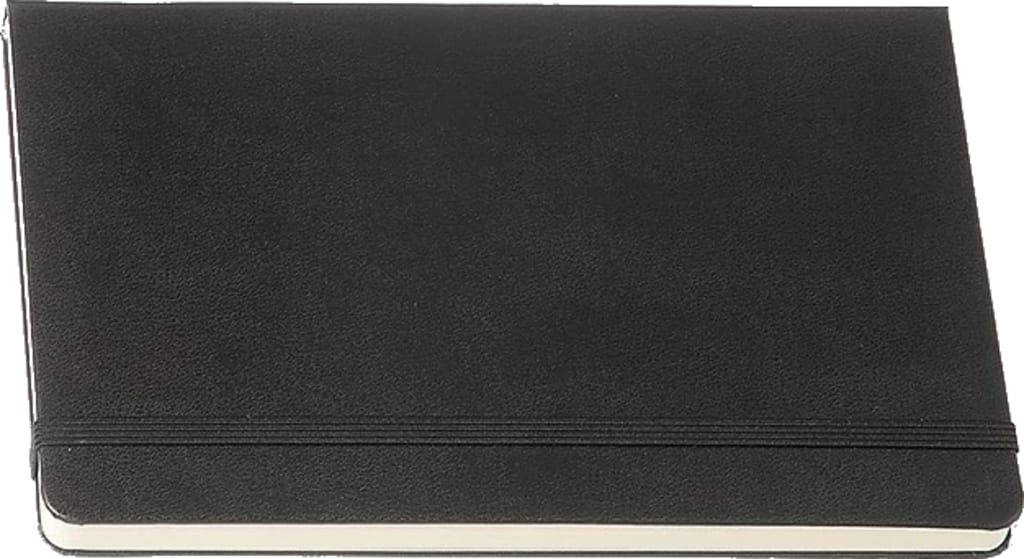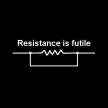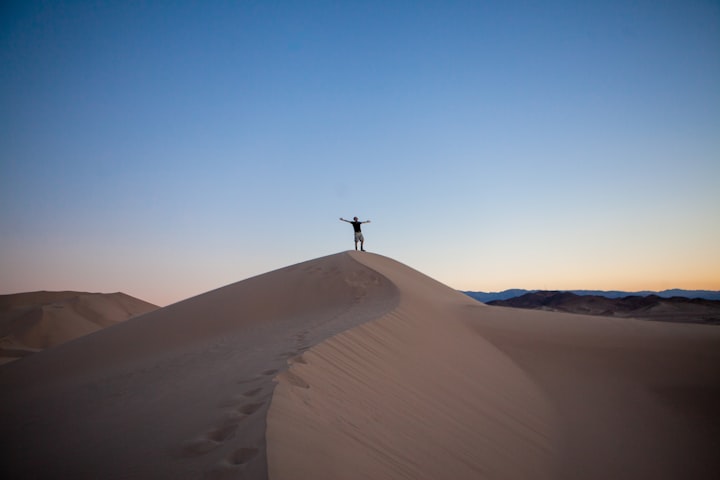Through Cracks in the Sidewalk
A Little Black Book

October is not a friendly month to be outside. Not, at least, in the city. Ask anyone, and they’ll tell you that sitting on cold concrete is not a pleasant thing to do, but any normal person doesn’t do it for all that long: to really understand the cold you have to be sitting behind a little sign that sums your existence up with pleading black sharpie on the inside of a liquor box. You needed your spine up against the unyielding, spiritless rock, and your tailbone parked uncomfortably on a fold in your jeans, trying to find some variety in the numbness that a thin nylon sleeping bag won’t provide. The real cold doesn’t kick in until you don’t have an option to get away from it, and it takes on that broody, seductive whisper telling you that it’s here for you now, that it will hold you while you fall asleep if you let it, and if you wake up, it will be there waiting.
In short, you needed to live on the street to really understand how cold it could be. For me, it had been less than a year, since flunking out of my spring semester when a class called “Selective Readings in Religious Studies” had gotten a little too real. I had been in Open Studies, which wasn’t quite General Studies, which itself is the category you get lumped in to when you haven’t met the course requirements for whatever undergrad program you were aiming for. My mom, bless her, had been the one to convince me that when I grew up, I could help people, I could show them a side of the world that was brighter, safer, and more supportive, so I had been aiming for the Social Work program when my life got derailed.
My girlfriend at the time, who, confronted with the kind of pressure and bullying and abuse that came part in parcel with being a cloistered student with demanding parents and perfect grades suddenly coming out to the world that maybe she wasn’t exactly what they had expected her to be, imploded very publicly against my efforts to be supportive before disappearing under her family wing and leaving all that pressure pointed squarely at me. Of course, I couldn’t blame her for what I’d done to myself: I still failed my other classes, I still dropped out of my clubs and groups; I still turned on myself, taking her lead and following the mob that I felt rose up against me, and retreated from the idea that I hadn’t actually helped her, and caused more harm than good. These thoughts strangled me, as I struggled with the idea that maybe I wasn’t actually suited to help people, that maybe I was the problem, and that I couldn’t separate what I wanted for myself from projecting on to others. The self loathing of it all made me run, and, ironically, I ran fast enough for that system I was trying to be a part of to miss me on my way out the door.
Mom wasn’t there to catch me. Her last gift before the cancer took her away was to pack up the small amount of money left over from her treatments, when it became clear they wouldn’t do the job, and put it in to my college fund. She’d paid for my curriculum, and theoretically there was still money sitting for that in my accounts, but I couldn’t take them out for anything but tuition and a small living expense, so as soon as I dropped out of classes I was on my own. Coffee is for Closers, and Dorms are for Students, so it wasn’t long before I was spending more and more of my time outside, away from people I knew, ‘camping’ in parks while the summer was warm, and not doing anything about the encroaching doom of winter that I knew was coming, but couldn’t face.
So, there I was, a month after fall admissions had come and gone without me, sitting on a corner behind a cardboard sign. Now and then, someone dropped a metal chit into the frayed paper cup in front me, taking pity on my ragged bundle of scarves and paying tribute to “Anything Helps; God Bless”. Somewhere nearby, the two older women I’d made friends with to keep safe were watching over the small pile of shelter supplies we shared so that no one made off with them. I wasn’t drunk, but I wished I were, that day, because of the endless droning memories that ran their course through my head, picked over and smelling of electronics in my brain as I dwelled on the ways I’d failed my way into this situation.
I heard a clink of coins in my cup, and mumbled a quiet, reflexive thanks to whoever had done it. I didn’t look up anymore, didn’t want to see the faces, or have any of the conversations: I was still near enough to the University that people could, and had, recognized me, and I couldn’t handle the looks of pity or worse which flashed over their faces. This time, a moment later though, I heard a strange flap, and my eyes cut to the source, seeing a black rectangle sitting on the edge of my sleeping bag where my latest benefactor had dropped a notebook from their bag.
I reached out to pick it up, briefly being disgusted with myself for the dirt under my nails, then froze: the pair walking away were old friends of my Ex. Memory of some of the things they’d said, about me were hot flares that burned in my dreams, and I froze. I sat there, hand trembling, caught between the memory, the fresh anxiety of having them see me like this, and the strong, ingrained impulse to do the right thing. Then, they were gone, and it was too late. Without a second thought, I picked up my cup and my sign, and ran with my blanket under an arm as if the cops were after me.
That night, I sat up looking at the book. It was new, with tacky residue where the price tag has been peeled away, but not a crease in the spine or a drop of ink on the pages. The lines were so blue, so perfect, and the page so white, that when I smudged a corner with a dirty thumb print, I slapped the soft cover closed and found some wipes so I could wash my hands. It reminded me of a better time, a cleaner time, a time when I had a diary, and when I took notes. It reminded me of something one of my high school English teachers had told me when I was struggling with an assignment: write what you know, but also write what you want, and between the two, write a story.
The first words in my new book were “If I had a dollar for every time I wished someone saw me, I’d spend them all to hide.” The first pen I used was a stolen one that Crazy Dave had ripped off a stand at the bank: it still had little silver beads dangling from the end, and Dave had attached a teddy bear charm to it before handing it over, so that he “Would know if the same one didn’t come back”. It ran out of ink fast, and it cramped my hand up, but it got me noticed for writing, and one of the others, a big scary woman who had been a single mom before the state took her kids, had tried to take the book from me. That was probably the first time I actually needed, and had, the Ladies stand up for me, and they took the book back before anyone could hurt it.
There were a couple other pens, but the one I really liked was a broken one that ran too heavily if it wasn’t used carefully, but that gave shape and contour to the words like magic. When I wrote with it, it was like carving, using my little chisel to etch the symbols into my notebook like magic runes. I wrote formulas, doing calculus, I wrote stories, about my fellows on the street and about an imaginary person who didn’t know what they wanted to be, so decided never to grow up. Perhaps the most interesting piece in the book, though, was a page that was dog-eared twice and which had a bookmark, and an elastic band around the spine to mark the page in the book: it was a poem, and I’d written it for the person who had put me in this situation.
It was a love poem, and it was addressed to myself. It was honest, it was earnest, and it was written not from my heart, but from my mother’s: when I took the pen out that night, I had intended to write to the girl who broke my heart, but when the words started to flow, it was clear I wasn’t talking to the Ex, but to the little girl I used to be, who brought light to dark places and who wanted to change the world. It wasn’t judgmental, it wasn’t overly weepy, something about it married up love and intent into a story of hope that took over the place in my mind where that burnt electric itch had been gnawing away at me, replacing it with a sensation like crying into a warm woolen sleeve, and falling asleep being loved.
It wasn’t long before the book was full; it wasn’t long before the book was lost. I was sitting under a bridge with the Ladies, and the police had shown up to run us all off. In my haste to gather my things, I tucked up my blanket, and the book fell out with a flop sound I only heard in my dreams afterward, same as the day I’d found it. I cried for days, and for weeks afterward I was different, more like when I’d arrived than who I was becoming. And things looked like they would stay that way, until one day when that big scary Mama showed up, holding a ripped photocopy, which she held out to me behind my sign. On it was the poem from my book, and a plea that if I knew who had written it, please call this number.
The police, when cleaning up our old camp, had collected the book, and one of them read through it. That cop had their own kid in school, and he couldn’t throw it out after seeing that. They shared it around the station, and they posted it online. At first, I was gutted that my whole inside self was out there for everyone to see, but Mama stopped me freaking out and told me something else: a social worker, who worked with people like us, had gotten these people together, and a bunch of them had chipped in to help pay for the poem to go in to a book: almost $20,000. She wanted me to call because they had enough to publish me, and they needed my permission to do it.
That was when I started to climb up. That’s when the people around me, the Ladies, Mama, Crazy Dave, all helped me move back out off the cold concrete and into the world I left behind. I’m a social worker now, and I work with at-risk youth, and students struggling with the system. We made sure the proceeds went to helping the people who took care of me when I was down, and we called the book “Through Cracks in the Sidewalk”. The last words I wrote in the book, before it went to print, were: “If I had a dollar for every time I wished someone saw me, I’d buy a book instead.”
And it’s dedicated to you.
About the Creator
Shiv MacFarlane
I write because I live.






Comments
There are no comments for this story
Be the first to respond and start the conversation.